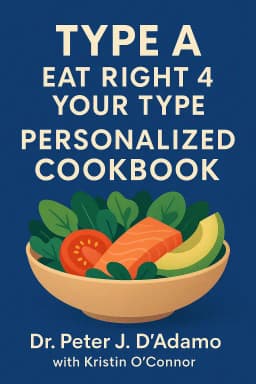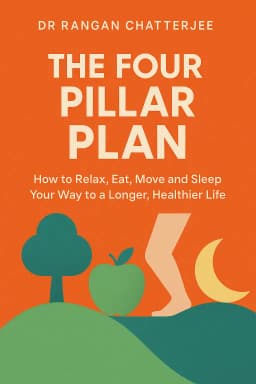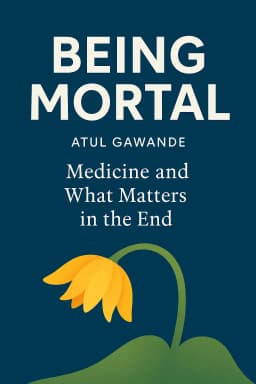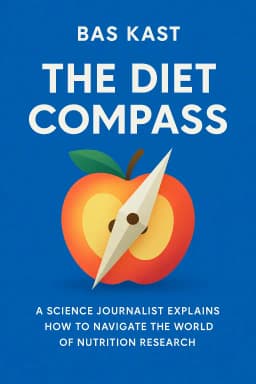
The 12-Minute Mandate: Hacking Success with the Science of Efficiency
Golden Hook & Introduction
SECTION
Socrates: What if the most common advice for success—the mantra of 'putting in the hours'—is fundamentally wrong? We're told to grind, to hustle, to outwork everyone. But what if the key to peak performance isn't about the volume of our effort, but the intensity?
2555: I'm so glad we're talking about this, Socrates. That core question is something I think about a lot. We celebrate this 'hustle culture,' but I'm always wondering if it's the smartest way, or just the most visible way. I'm excited to see how a book about fitness can shed light on that.
Socrates: Exactly. It uses the body as a laboratory to test these ideas. So today we'll dive deep into this from three perspectives. First, we'll expose the tyranny of 'more' and why conventional wisdom often fails. Then, we'll uncover the science behind the 'efficiency mandate'—how to find those actions that give you 100x returns. And finally, we'll discuss the idea of strategic self-investment, and how building your 'metabolic capital' is the foundation for everything else.
Deep Dive into Core Topic 1: The Tyranny of 'More': Why Conventional Wisdom Fails
SECTION
Socrates: So, 2555, let's start with that first idea: the tyranny of 'more.' The book argues that in fitness, like in so many areas, we're drowning in bad information. And the most dangerous source isn't some shady website, it's often just... other people. Their testimonials, their advice.
2555: The classic "well, it worked for me" argument.
Socrates: Precisely. And the book has this perfect, almost hilarious story that shows how potent that is. Picture this: it's the late 20th century, and a writer for a popular fitness magazine has some extra space to fill in an issue. As a joke, a complete farce, he writes a facetious article about a new 'miracle supplement.'
2555: Okay, I'm listening.
Socrates: He even has the art department create a little perforated square of paper in the magazine. The instructions were to tear it out, place it in a glass of water, and then put the soggy paper on your tongue for "optimal muscle gains." It was a total joke.
2555: No way. What happened?
Socrates: The magazine goes to print. And the publisher is absolutely inundated with letters and phone calls. People weren't in on the joke. They were writing in, saying things like, "This is amazing! My strength has gone through the roof!" and, most importantly, "Where can we get more of this awesome paper?"
2555: That's incredible. It's the perfect example of social proof and the placebo effect gone wild. You see this everywhere, especially in the worlds of personal growth and finance. Someone promotes a 'system' or a 'secret,' and because a few people—or even just the promoter—claim it worked, everyone else jumps on board.
Socrates: You've hit on the exact term the book uses: 'assuming a causal relationship.' We see a successful person and we assume they're successful because of their stated method. The book uses the example of a marathon runner. We see their lean physique and think, "Ah, running for hours and hours is what creates that body."
2555: But the book's point is that it's more likely the other way around, right? People who are naturally lean and have a certain body type are the ones who excel at, and therefore stick with, marathon running. It's self-selection.
Socrates: Exactly. It's a critical thinking error. The book compares these outliers to 'tall trees in a forest.' We notice the one that towers above the rest and we try to figure out its secret, when in reality, it might just be statistical variation—a lucky combination of genetics and environment.
2555: That forces you to ask such a powerful question before you adopt any new strategy or follow any mentor. You have to ask, "Is this person's success a result of their specific method, or are they just a 'tall tree'?" It makes you pause and analyze the underlying principles instead of just copying the surface-level actions.
Socrates: And that skepticism, that desire to look for the real principles, is the perfect gateway to the book's core solution. Because if just doing 'more' of what everyone else is doing isn't the answer, then what is?
Deep Dive into Core Topic 2: The Efficiency Mandate: Finding Your 100x Investment
SECTION
Socrates: The authors of "Body by Science" argue the answer is intensity. And the evidence they present is, frankly, startling. It comes from a series of now-famous studies conducted at McMaster University in Canada. The researchers wanted to test this 'more is better' idea head-on.
2555: So they set up a direct comparison?
Socrates: A brilliant one. They took a group of recreationally active students and split them in two. The first group, the 'Endurance Training' group, did what we all think of as standard cardio. They got on stationary bikes and rode at a moderate pace for 90 to 120 minutes, three times a week. That’s about four and a half to six hours of exercise a week.
2555: Okay, that sounds pretty standard. The typical gym routine.
Socrates: Now, get ready for the second group. This was the 'Sprint Interval Training' or SIT group. Their entire workout consisted of a few 30-second, 'all-out' sprints on the bike, with four minutes of rest in between. Their total time doing actual, hard exercise? Less than ten minutes... per week.
2555: Wait, a week? Not a day? So one group is doing about five hours, the other is doing less than ten minutes. The difference is massive. What were they measuring?
Socrates: They measured a whole host of things, but the big ones were endurance capacity—how long they could ride before exhaustion—and molecular changes in the muscle itself, like the amount of glycogen stored and the activity of certain enzymes that show improved aerobic fitness. After just two weeks, they tested both groups.
2555: And? I'm on the edge of my seat here.
Socrates: The results were mind-blowing. Despite the colossal difference in time commitment, both groups improved their endurance and their key muscle markers to the exact same degree.
2555: That can't be right. So you're telling me that less than 10 minutes of work a week produced the same result as 5 or 6 hours? That's not a 10% improvement in efficiency, that's... I mean, the return on investment there is astronomical. It's a 100x improvement.
Socrates: Precisely. It's the ultimate example of the 'minimum effective dose.' The researchers concluded that the critical stimulus for change wasn't the duration of the exercise; it was the brief, high-intensity signal that was sent to the muscles. The body responded to the quality of the work, not the quantity.
2555: This is a complete game-changer for how you think about any goal. It reframes everything. It’s not about studying for 10 hours; it's about finding the 30 minutes of deep, focused, high-intensity work that actually moves the needle. It's about identifying the one key habit in personal finance, like automating savings, that has a cascading positive effect, rather than trying to micromanage twenty different things at once.
Socrates: You've just articulated the entire philosophy of the book and applied it to life. It's about finding the highest-leverage activity. The body, it turns out, is an efficiency machine. It doesn't want to waste resources. You give it a powerful enough reason to change—a very intense, albeit brief, challenge—and it will adapt. The hours of slow, steady work were, in a sense, mostly wasted time.
2555: It reminds me of the leaders I admire, like Ruth Bader Ginsburg. Her impact wasn't just from working endless hours, but from the incredible intensity and precision of her legal arguments. She found the leverage points in the system. This study is like the physiological proof of that concept. Find the leverage point, apply intense pressure, and you can move the whole system.
Socrates: What a fantastic connection. And that idea of moving the whole system leads us perfectly to the final, crucial shift in mindset the book offers. The goal of this high-intensity work isn't just to be efficient for efficiency's sake. It's to make a strategic investment in what the book argues is our most important physical asset.
Deep Dive into Core Topic 3: Strategic Self-Investment: Building Your 'Metabolic Capital'
SECTION
Socrates: We're often taught to think of exercise in terms of 'cardio' for the heart or 'burning calories.' But "Body by Science" proposes a radical reframe: the center of your metabolic health isn't your heart; it's your muscular system.
2555: That's counter-intuitive. The heart is always seen as the engine.
Socrates: It is an engine, but the book argues it's more of a support system for the real factory: your muscles. And the best way to understand this is with a simple thought experiment. Imagine you're at the bottom of two flights of stairs. Next to you is a frail, eighty-year-old man. You both walk up the stairs. You get to the top and feel fine. He gets to the top, and he's gasping for air, heart pounding. Why?
2555: Well, you'd assume his cardiovascular system is weaker. He's out of shape.
Socrates: That's the common assumption. But the book argues the primary reason is that he lacks strength. His muscles are atrophied. Let's say climbing those stairs requires 200 units of work. Your strong leg muscles might have 2 units of strength per fiber, so your brain only needs to recruit 100 fibers to do the job. It's an easy task.
2555: Okay, that makes sense.
Socrates: But the elderly man's muscle fibers only have 1 unit of strength each. So to do the same 200 units of work, his brain has to recruit 200 fibers. He's using a much larger percentage of his total capacity. His cardiovascular system then has to go into overdrive to support that massive effort. The bottleneck wasn't his heart; it was his lack of muscular strength.
2555: Wow. So strength isn't just about lifting heavy things. It's about creating a buffer, an operational reserve for your entire system. Having more muscle—what you called 'metabolic capital'—means that everyday life literally costs you less energy.
Socrates: You've nailed it. It's the ultimate investment in your future capacity. Every pound of muscle is metabolically expensive tissue. It's burning calories even at rest. It acts as a huge reservoir for blood sugar, which is critical for preventing things like type 2 diabetes. More capital means more energy, better insulin sensitivity, and more resilience against stress and aging. It's the foundation that allows you to pursue all those other goals.
2555: That's such a powerful metaphor, especially for someone interested in financial literacy. We talk about building financial capital to gain freedom and resilience. This is the exact same principle, but for our physical selves. You can't build a business, or a career, or a legacy on a shaky, inefficient foundation. Investing just 12 minutes a week to solidify that physical foundation... it seems like the most logical and high-ROI first step in any serious plan for success.
Socrates: It becomes the non-negotiable. The small, strategic deposit you make each week that pays compounding dividends across every other aspect of your life.
Synthesis & Takeaways
SECTION
Socrates: So, when we pull it all together, it's a remarkably simple but profound roadmap. First, we have to develop the critical mindset to question the dogma of 'more is better.'
2555: And look for the hidden fallacies, like assuming causation where there's only correlation. The 'tall tree' problem.
Socrates: Second, we have to actively search for the minimum effective dose—that high-intensity, high-leverage action that gives us disproportionate results, just like in the McMaster study.
2555: The 100x investment. The strategic sprint instead of the endless jog.
Socrates: And finally, we reframe the goal as a strategic investment in our foundational 'metabolic capital,' building a resilient base that makes everything else we want to achieve easier.
2555: This whole conversation has been so much more about strategy than about exercise. It's about applying a successful mindset to our own biology. So I think the real takeaway for me, and for our listeners, is to take this model and apply it elsewhere. To ask that one powerful question...
Socrates: What's the question?
2555: In your career, your studies, or your personal projects, what is your 'long, slow cardio'—the thing you do just because you're told it's the way, the thing that consumes hours for minimal return? And more importantly, what could be your '30-second sprint'—the high-leverage, intense, focused action that could give you the same, or even better, results in a tiny fraction of the time? Finding that is the real secret to success.









